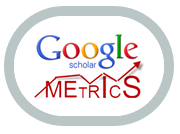Enfrentando As Fake News: Memes Como Prática Educativa Na Checagem De Fatos
Abstract
This article attempts to investigate the use of meme as practice of false news check education - the infamous fake news. It is a question of seeing in the memetic image an instrument of know-power that gives young people, above all, the policing of themselves in relation to the dissemination of false content. The meme, as a discursive practice, is seen by us as an element that brings the political debate closer to the popular layer, since it brings to the surface, although through humor, complex themes, often restricted to a certain social group. In this article, we seek to analyze the pedagogical treatment provided by memes to check facts, a technique that insists in order to mitigate the lie and bring the truth of events. The pedagogization of memes, in this sense, implies doubting the content of a fake news, which encompasses images, audios, news, rumors, all out of the reality of the facts. Having said that, our study was developed under the assumptions of the Foucaltian Discourse Analysis, which has as theoretical and methodological framework the categories founded on archeogenealogy, coming from the ideas of the French philosopher Michel Foucault. Moreover, it is worth mentioning that this research is characterized by being qualitative, since we use the social interpretation of the facts in the corpus chosen for analysis
Downloads
Downloads
Published
How to Cite
Issue
Section
License
Copyright (c) 2020 PERcursos Linguísticos

This work is licensed under a Creative Commons Attribution-NonCommercial-NoDerivatives 4.0 International License.
O autor de submissão à Revista PERcursos Linguísticos cede os direitos autorais à editora da revista (Programa de Pós-Graduação em Linguística - UFES), caso a submissão seja aceita para publicação. A responsabilidade do conteúdo dos artigos é exclusiva dos autores. É proibida a submissão integral ou parcial do texto já publicado na revista a qualquer outro periódico.
Os trabalhos aqui apresentados utilizam a licença Creative Commons CC BY: Attribution- NonCommercial- NoDerivatives 4.0 International. Para mais informações, verificar: https://creativecommons.org/licenses/by-nc-nd/4.0/
Os trabalhos na revista são arquivados pelo sistema Rede de Preservação PKP (PKP PN) e LOCKSS





